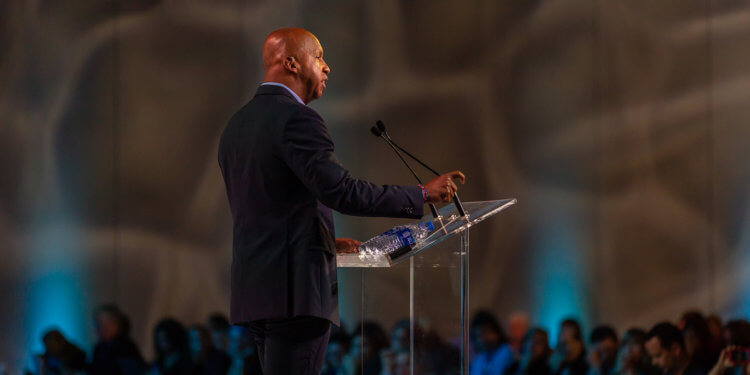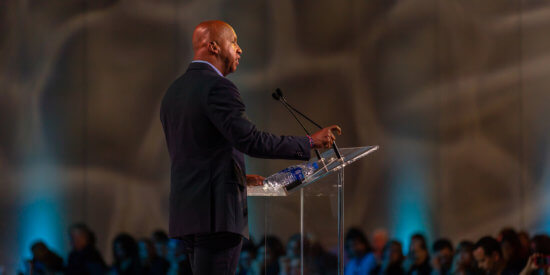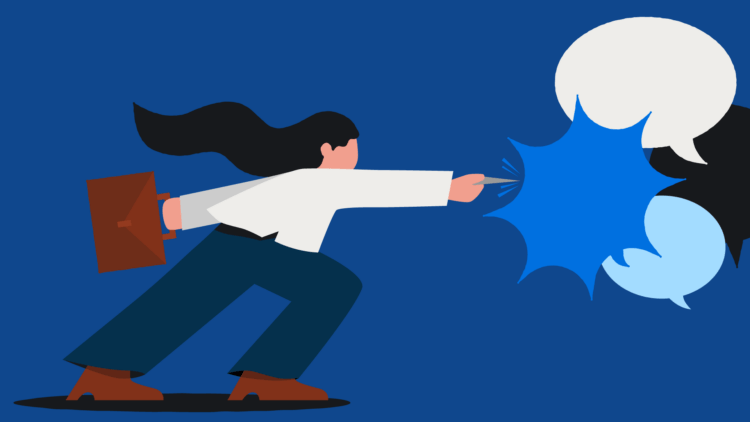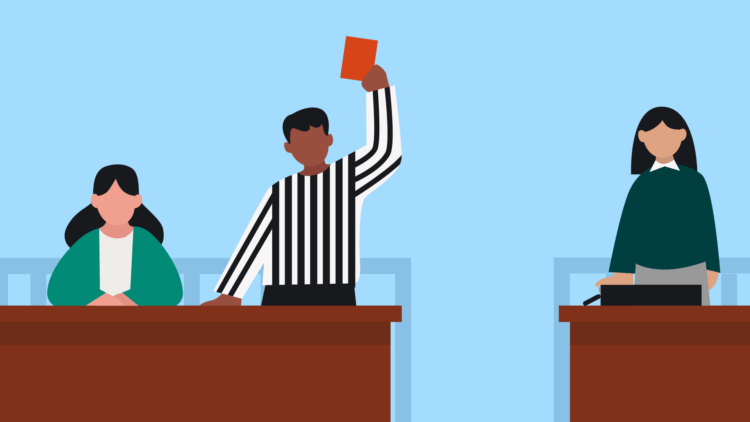As a legal professional, it can be easy to forget why you got into law in the first place. But for Bryan Stevenson, the opportunity to do good is infinite, and he sees lawyers as being one of the groups best positioned to make a difference.
As Founder and Executive Director of the Equal Justice Initiative, a MacArthur fellow, and a New York Times best-selling author, Bryan Stevenson is one of the nation’s most acclaimed and respected lawyers. A visionary legal thinker and social justice advocate, he’s at the center of critical national conversations around mass incarceration and equal access to justice.
We sat down with Bryan to talk about the importance about how more lawyers can truly have a positive effect on the lives of others.
Fighting injustice
Thousands of legal professionals across the United States fight for justice every day. But for Bryan, it goes a bit further than that: He’s dedicated his career to fighting systematic injustice in the American legal system.
His inspiration? The trust that a client put in him when he was a young lawyer:
I was very nervous about my ability to help someone with my limited law school education, but it was clear to me that being there and talking to him had an impact on the quality of his life. It was the first time I felt like I could make a difference in the lives of people. His humanity, his willingness to accept me as someone who might be able to make a difference despite my limitations, really said something to me about a dynamic, a relationship that’s possible.
For Bryan, relationships are key, and justice is paramount. He believes that if we commit to giving people the dignity and humanity they deserve, then the barriers and conditions that give rise to poverty and sustain it will begin to fall away.
Throwing money at the problem, on the other hand, simply won’t work. “Money, in the absence of justice, in the absence of structural equality and structural reform, isn’t going to be sufficient,” he explained.
Thus far, there’ve been plenty of misconceptions that have driven some of the general public to turn a blind eye to structures and systems that keep people disadvantaged. By practicing empathy, listening to people’s stories, and building relationships, lawyers can be a big part of how the country faces these issues.
I feel like our history is kind of smog in the air. It’s toxic, and it makes it hard for us to breathe the way we’re supposed to breathe. It compromises our health and our wellbeing, and our expectations and hopes and dreams. And there are some things we can do to confront, to overcome, to address this pollution. It will be difficult and complicated and challenging, but I fully embrace that concept that you can’t just deny or ignore or run away from the sources of stresses and conflict—you have to address them.
3 ways lawyers can make a difference
The United States incarcerates more of its citizens than any other country in the world. Poverty significantly impacts access to justice. Almost a third of the adult working age population in the US has a criminal record, with even a minor conviction creating lifelong barriers to employment, housing, and more.
For lawyers to operate effectively within this reality and turn the tide against injustice, Bryan believes that three things are most important:
You may like these posts
1. Get educated
Lawyers may have gone to law school, but Bryan says that more education is always a good thing—especially when it comes to looking critically at issues within our society today.
“We all have to be more educated about what it means to live with the kind of extreme stratification that our society presents,” Bryan said. “We’re one of the richest nations on the planet but we have a lot of poverty; that there are 60 million people living below the federal poverty line is really quite tragic, and we have to understand what that means and be attentive in addressing that.”
2. Stay hopeful
The first step towards change is believing that things can change. Believing the stories of the disadvantaged, sharing in their experiences, and looking for small ways to change for the better could help move us towards a more just society.
“We have to be more hopeful about what we can do. Hopelessness is the enemy of justice and it’s what allows injustice to prevail,” Bryan explained. “In that respect, we need lawyers and people trained and skilled with the tools that the law can provide—people who are motivated to do things, and to change things.”
3. Engage the heart
Finally, Bryan stressed the importance of getting out of one’s head and remembering why you decided to practice law in the first place. Having a passion for justice is what will propel many in the legal profession to fight difficult cases and make a real difference.
We have to be willing to engage, not just what we know in our head and what we think in our mind, but we also have to engage our heart. I think justice comes when the ideas in our mind are fuelled by the convictions in our heart and I don’t think there’s anything wrong with being passionate or motivated or engaged or impacted by the things we do. And this passion-disconnected posture that so many in the legal profession take, I think actually feeds a kind of indifference to inequality and injustice that we need to reject.
The potential to do good
Bryan left us with one final thought: Lawyers may think about volunteering or doing pro bono work because it helps the disadvantaged, but it’s also worth thinking about it in terms of helping themselves—the work they do helping others may be the best work of their lives. Bryan explains:
We all saw the value of people going to the border a few months ago when the crisis emerged down there and children were being snatched from their parents and the massive effort that it took, and it continues to take, to just reunite these families. But I’ve talked to people who have said their work on that has been the most fulfilling thing they’ve ever done. I just think there are these great opportunities waiting for legal professionals if they will orient themselves to helping people who are in need, with no expectations of what they’re going to get. What they’re going to get is immeasurable, but they have to approach it as if they’re doing it to serve.
It can be discouraging and disheartening to focus on some of the biggest problems society faces today, but with a bit of conviction, there’s potential for lawyers to do the best work of their lives, while making a lasting difference.
“I think there are a lot of unhappy lawyers, and the opportunity to do good is so infinite that there’s a reason to have the ability to make a difference in the life of someone and to change the burden that many people bear,” Bryan said. “I do think there’s something empowering and affirming and exciting about that.”
About Bryan
Bryan Stevenson is the founder and Executive Director of the Equal Justice Initiative in Montgomery, Alabama. Under his leadership, EJI has won major legal challenges eliminating excessive and unfair sentencing, exonerating innocent death row prisoners, confronting abuse of the incarcerated and the mentally ill and aiding children prosecuted as adults. Mr. Stevenson recently won an historic ruling in the U.S. Supreme Court banning mandatory life-without-parole sentences for all children 17 or younger. He is a graduate of the Harvard Law School and has been awarded 34 honorary doctorate degrees. He is the author of award winning and New York Times bestseller, Just Mercy. Learn more at eji.org and eji.org/just-mercy
In 2018 EJI opened a new museum, The Legacy Museum: From Enslavement to Mass Incarceration, built on the site of a former slave warehouse in downtown Montgomery. This is a companion to a national memorial to victims of lynching, The National Memorial for Peace and Justice, which opened at the same time. Learn more: museumandmemorial.eji.org
Edit: Updated for formatting June 1, 2020
We published this blog post in December 2018. Last updated: .
Categorized in: Uncategorized









